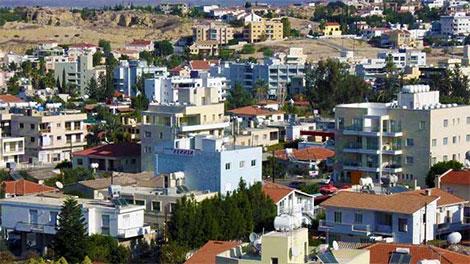A EUROPEAN Commission report suggests that the high number of mortgage-backed NPLs is pushing property prices downwards.
According to the EC’s report entitled ‘Housing Market Developments in Cyprus‘ the large mass of NPLs is on the one hand affecting banks’ capacity and willingness to give out housing loans, and on the other is putting pressure on households to sell their property or use it as means of deleveraging in asset-to-debt swaps.
The latter trend is creating an increase in the supply of houses and flats in the property market.
According to the report, there is a direct connection between house prices, the supply and the non-performing loans. However, real estate analysts consider the downward pressure exerted by the mountain of NPLs may also have a positive effect on the market.
Experts see other forces afoot, pushing prices upwards and perceive the effect of the high number of NPLs as a factor which can help keep prices at a healthy level, preventing a new bubble in the real estate sector.
The EC report documents that in Cyprus a large portion of bad loans is backed by real estate. As the value of this collateral has fallen, banks have had to increase their provisions for losses.
The Cyprus property market was hit by the global financial crisis and then by the debt crisis of its banks and its lenders. House sales declined by 60% between 2007 and 2009. Nevertheless, sales to residents remained relatively stable by 2012.
As credit expansion ceased in 2012, house sales declined further. In 2015, house sales amounted to about 20% of their 2007 peak.
The report points out, a significant part of the real estate market is the sale of real estate to foreigners despite the fact that there has been a decline during the crisis.
The crisis affected significantly the sales of real estate to non-residents, which doubled in size between the accession of Cyprus to the EU in 2004 and the peak period of 2007.
With the global financial crisis, sales to foreign residents decreased by more than 80% and 2015 accounted for only 10% of 2007 sales. In 2016, sales of real estate to foreign residents accounted for around 25% of total sales.
The combination of declining sales and excessive stockpiling led to a sharp drop in prices of around 30% between 2008 and 2015.
It is argued that the decline in real estate prices has led to an increase in the number of strategic defaulters, especially those who took out loans with their first home as collateral.
Acknowledging that official indicators record a small increase of 0.8% in house prices and 1.4% in prices of flats in 2017, the EC sees 2017 as a turning point.
However, it said the recovery period is likely to be prolonged due to the number of homes coming on to the market after an asset-to-debt swap deal with the banks or a repossession.
Talking to the Financial Mirror, a Cyprus Central Bank contributor to the report, said that as things stand there is an oversupply of properties in the market and injecting so many properties after a debt-to-asset swap or repossessions could overpopulate the market causing prices to crash.
There is a dynamic which is building up that could see an increase in demand.
“The fact that households are in a better position to save up money as unemployment has dropped and households now have more than one source of income, allows households to feel more secure about buying a property,” said the CCB official on condition of anonymity.
“So yes, there is a serious increase of houses being injected into the market but on the other hand there is a small rise in demand,” he added.
The fact that households are in a better position financially than previous years, is also reflected in an increase of their deposits.
And the official does not expect the banks to unload the portfolios of properties acquired on the market in one go.
“Banks have shown constraint in unloading properties on the market, while not selling below market prices,” he said.
He said while there is concern of what will happen with NPLs packaged and sold-off to investment funds there is no gain in selling them off cheaply.
“However, this is an extreme scenario. It is not in their interest to sell off the assets at extremely reduced prices, which is what will happen if they attempt to unload their portfolio at once”.
The official argued that the fact that the high number of NPLs is holding prices down could turn out to be healthy for the market.
“Of course, if the number of NPLs was not as high as it is today, we would have been talking about an increase of 3%. Keeping prices closer to more reasonable levels can help the market to stay away from the exaggerations of the past which created the bubble which burst in our faces in 2013”.
No threat
Chairman of the Cyprus Property Owners Association George Mouskides, said that the high levels of asset-backed NPLs are currently providing a ceiling on property prices, rather than posing a threat to the market.
“We have yet to see any indication that the high NPLs or even the reintroduction of such properties to the market will drop prices to levels lower than what they are today,” said Mouskides.
He said the “banks have been very reasonable and cautious so as not to cause damage or a crash in the market. The real concern is the sale of mortgage-backed loan packages”.
Mouskides added that it remains to be seen how banking institutions or funds like the Apollo Fund will choose to make good on their investments.
The Bank of Cyprus package sold to the Apollo Fund is linked to some 9,000 properties.
“As the fund is acquiring such a vast portfolio at less than 20% of market value of the linked assets, it remains to be seen how the fund will wish to cash-in on their investment”.
The Bank of Cyprus has sold a portfolio of 14,000 mortgage-backed loans worth €2.8 billion at half the price (€1.4 billion). The loans package is linked with properties worth €5.7 billion, with the vast majority of loans (€2.7 billion) being deemed as non-performing.
Mouskides said that this may also lead people to offload their mortgaged or other properties at lower prices so as to bring in fast cash to pay off the debt.
He said that if he was in the fund managers’ shoes he would ask borrowers to pay back half of the value of their loans, as unloading so many properties in the market at once would be a potential threat for the sector.
(Courtesy Cyprus Property News Magazine)



